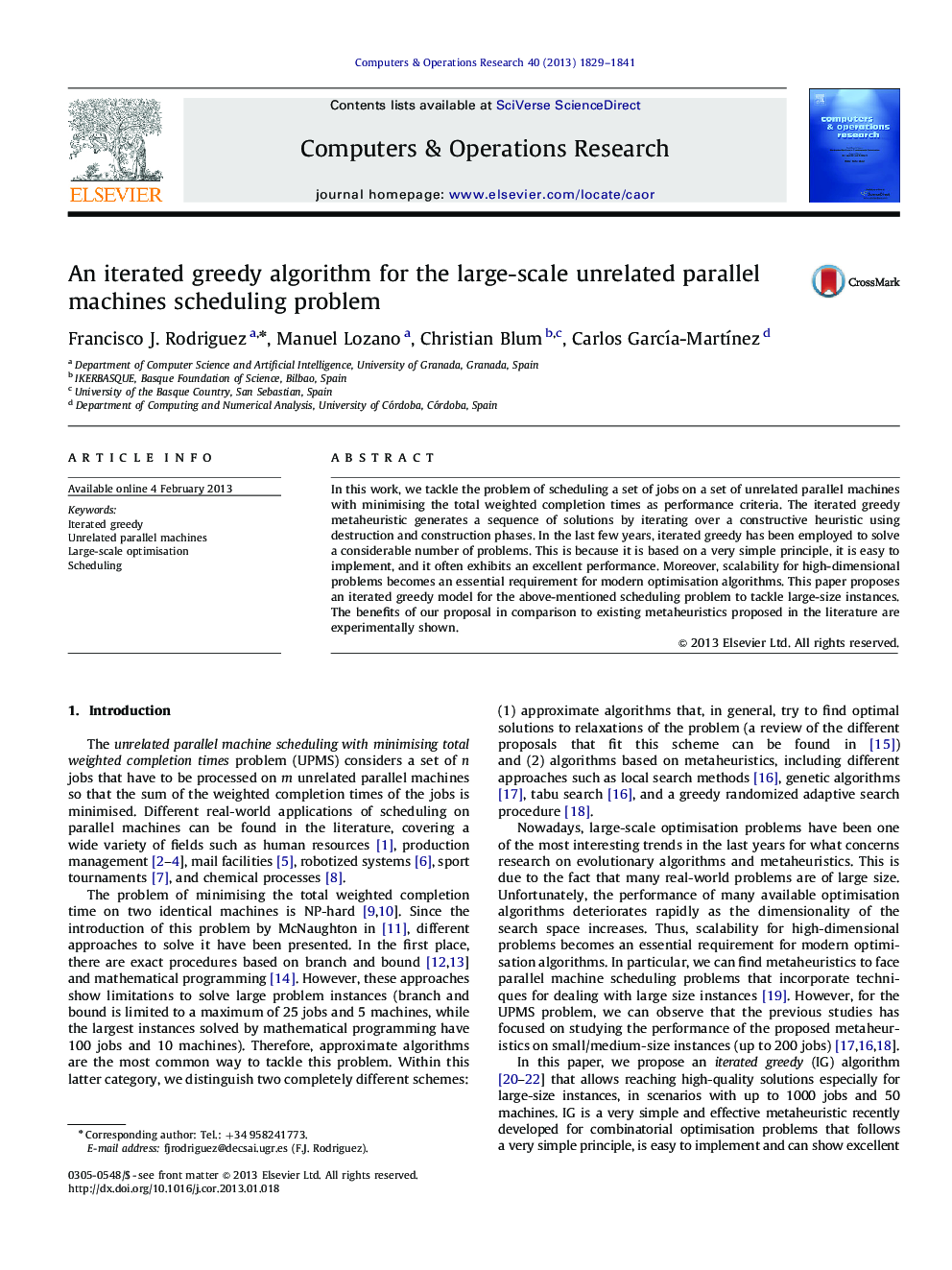| Article ID | Journal | Published Year | Pages | File Type |
|---|---|---|---|---|
| 475787 | Computers & Operations Research | 2013 | 13 Pages |
In this work, we tackle the problem of scheduling a set of jobs on a set of unrelated parallel machines with minimising the total weighted completion times as performance criteria. The iterated greedy metaheuristic generates a sequence of solutions by iterating over a constructive heuristic using destruction and construction phases. In the last few years, iterated greedy has been employed to solve a considerable number of problems. This is because it is based on a very simple principle, it is easy to implement, and it often exhibits an excellent performance. Moreover, scalability for high-dimensional problems becomes an essential requirement for modern optimisation algorithms. This paper proposes an iterated greedy model for the above-mentioned scheduling problem to tackle large-size instances. The benefits of our proposal in comparison to existing metaheuristics proposed in the literature are experimentally shown.
